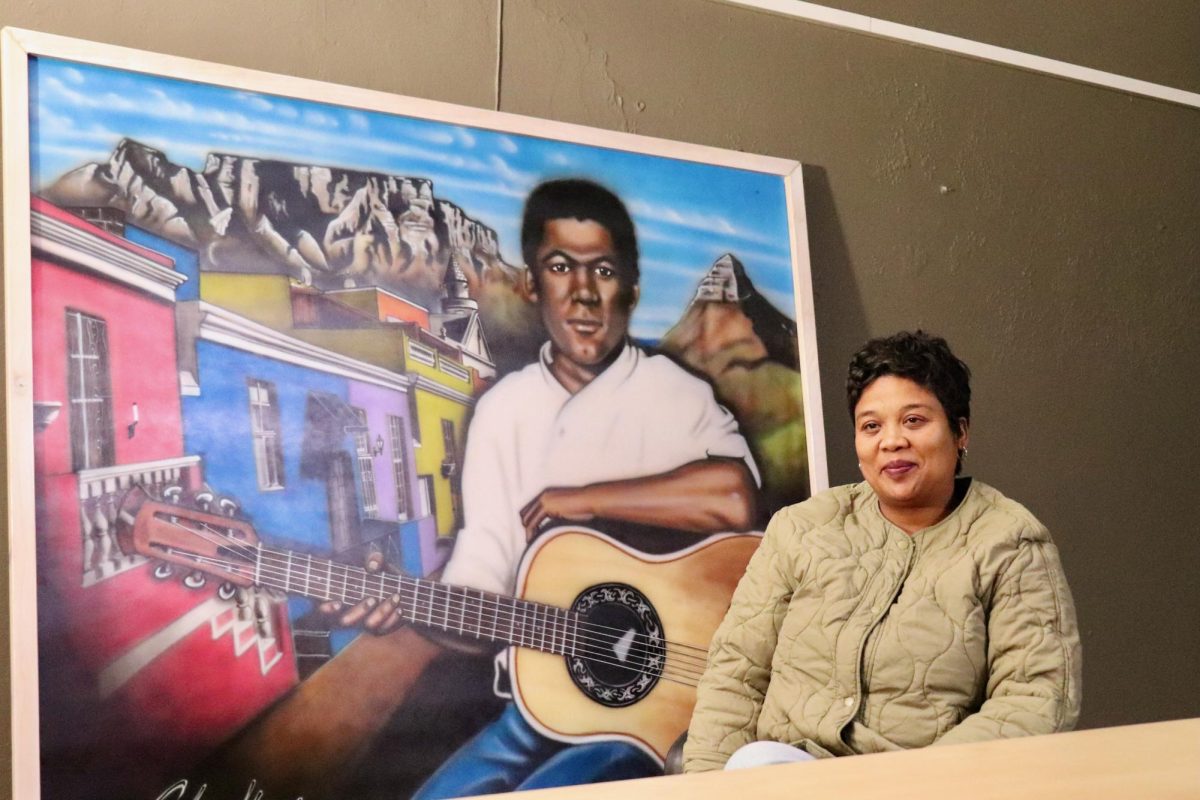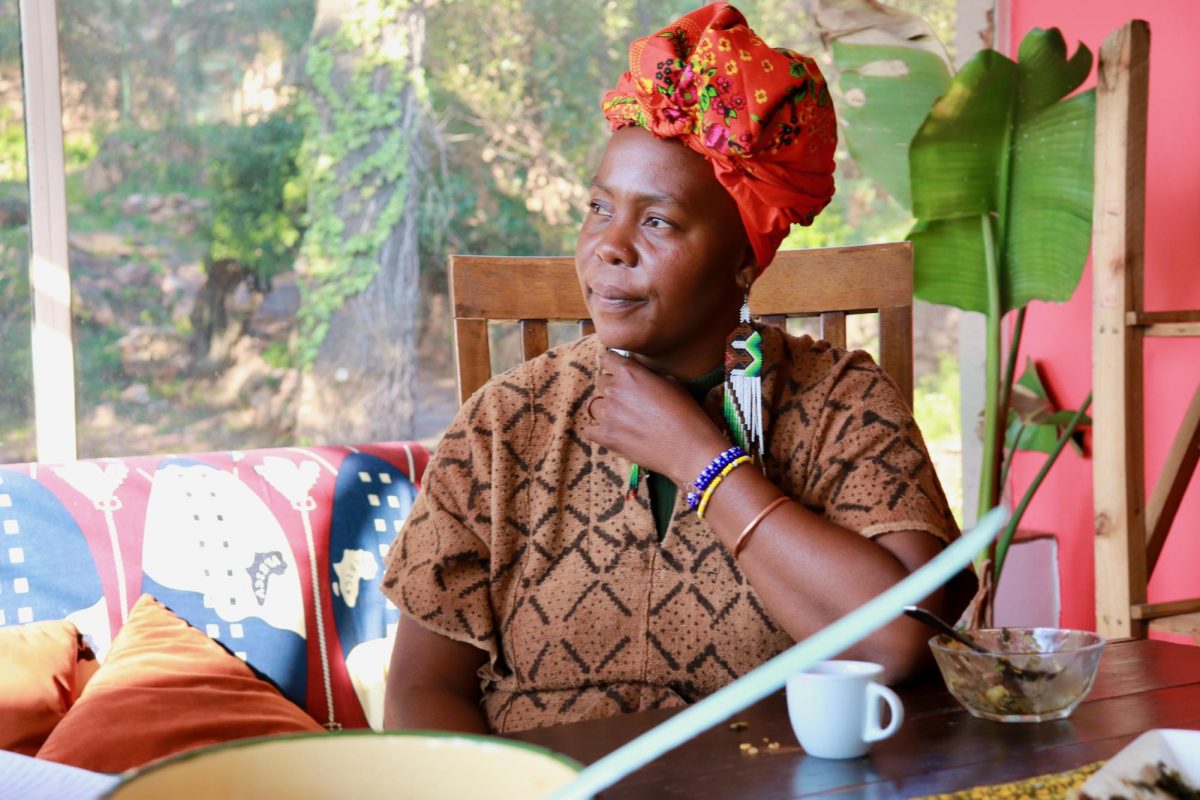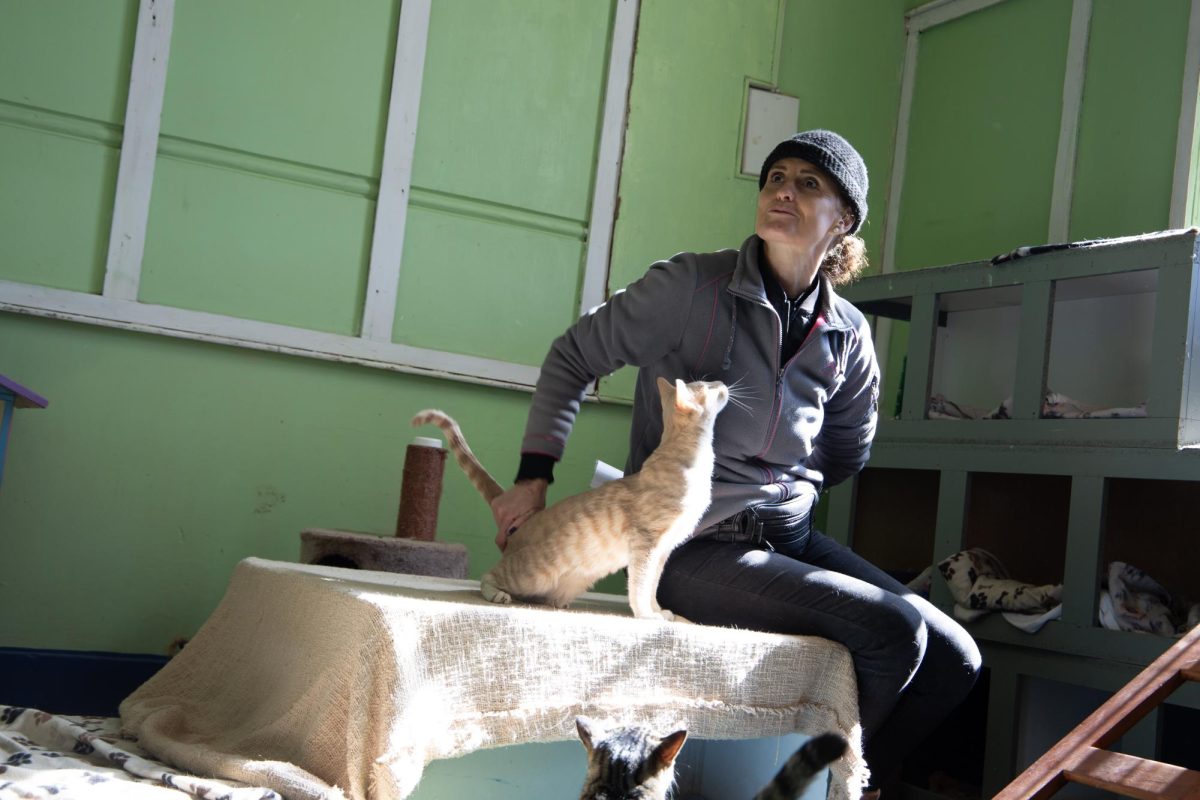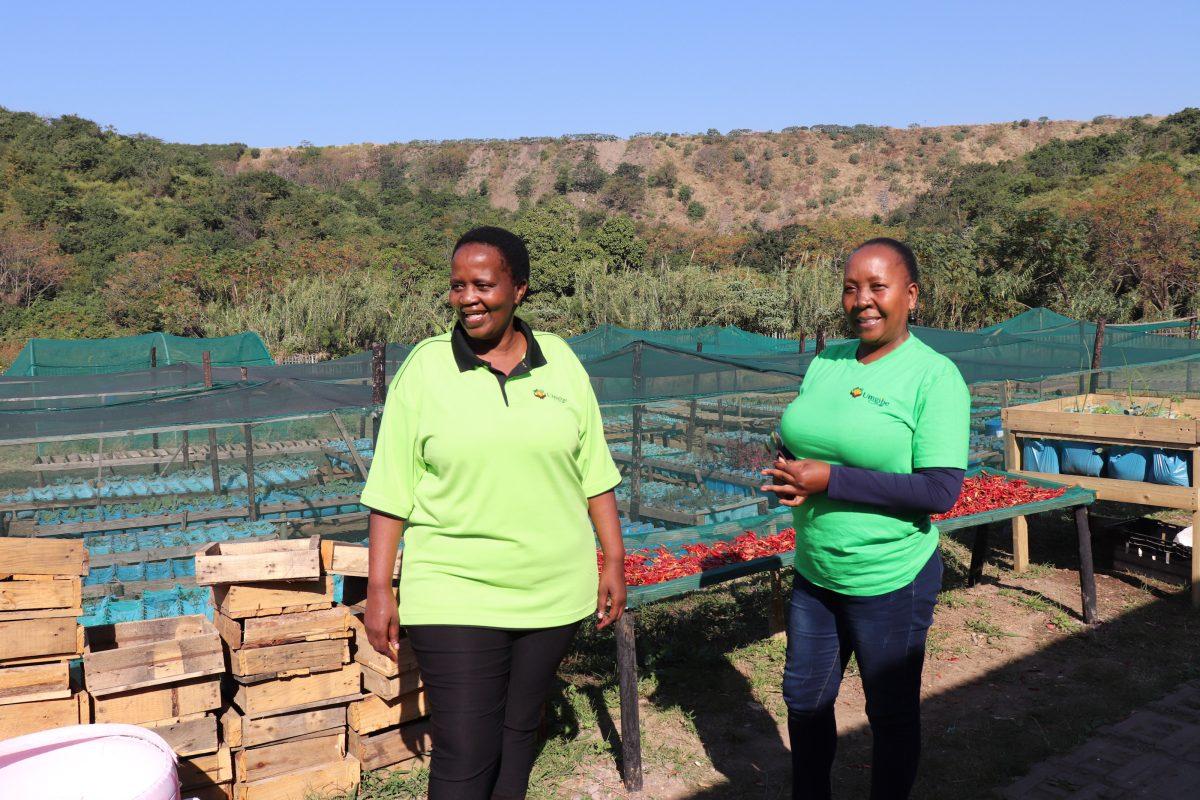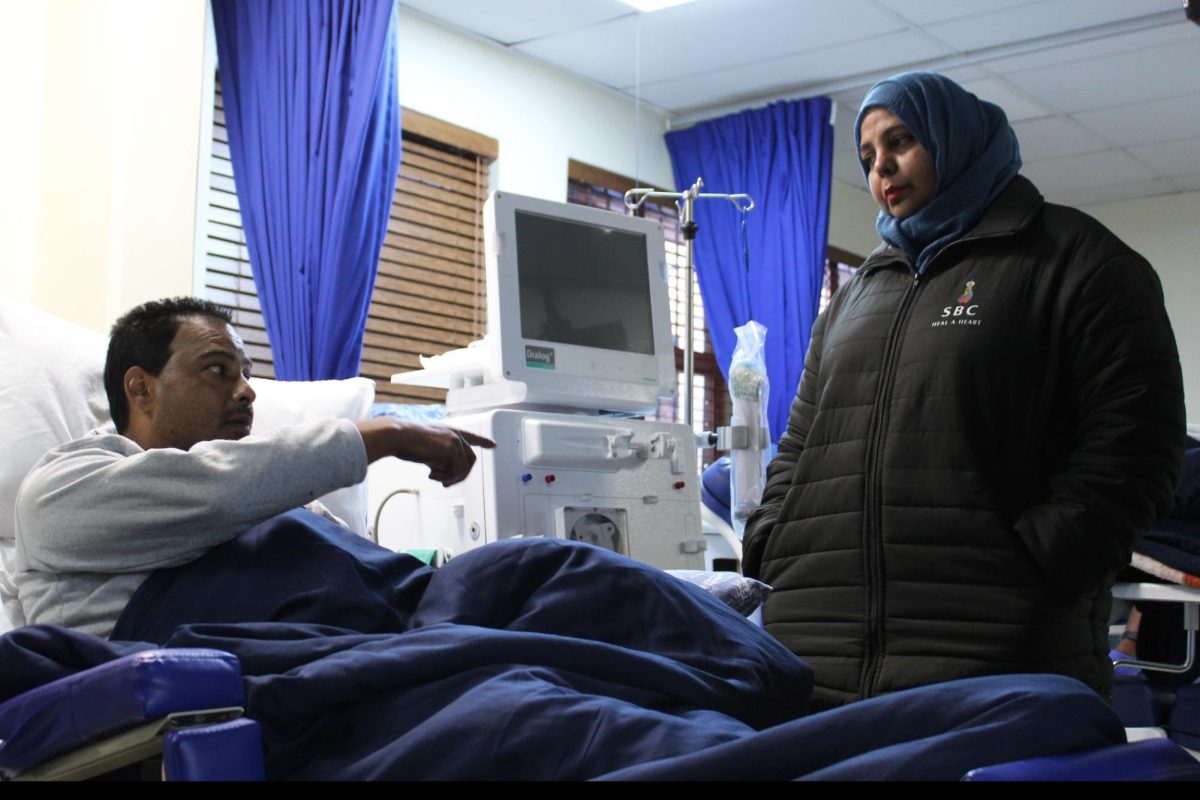Durban, South Africa — After a cancer diagnosis in 2014 that left her unable to work, Nonhlanhla Joye, the sole breadwinner in her household, planted a vegetable garden in her backyard in order to provide her family with healthy food.
But one morning, Joye woke to find the chickens had devoured the entire crop.
“I was left with stocks where there was vegetables,” Joye said. “All my food was gone. But as a mother you always have to do something to make sure your kids are fed.”
Joye remembered what her family called an “umgibe,” a Zulu word for the make-shift wardrobe where the family kept their sleeping mats and clothes to keep the termites from eating them. The growing system she subsequently created is based on the umgibe. Vegetables are grown in recycled plastic bags in a wooden structure to keep the plants off the ground.
When the system proved successful, Joye started selling vegetables to her neighbors. Soon the demand for vegetables in the community grew.
“Before long people started asking, ‘How much is your growing system?’” Joye said. “‘How much can I buy? Can I have this?’ And people started wanting to buy vegetables, wholesome organic vegetables. I realized the demand for the vegetables was growing, but I couldn’t really supply.”
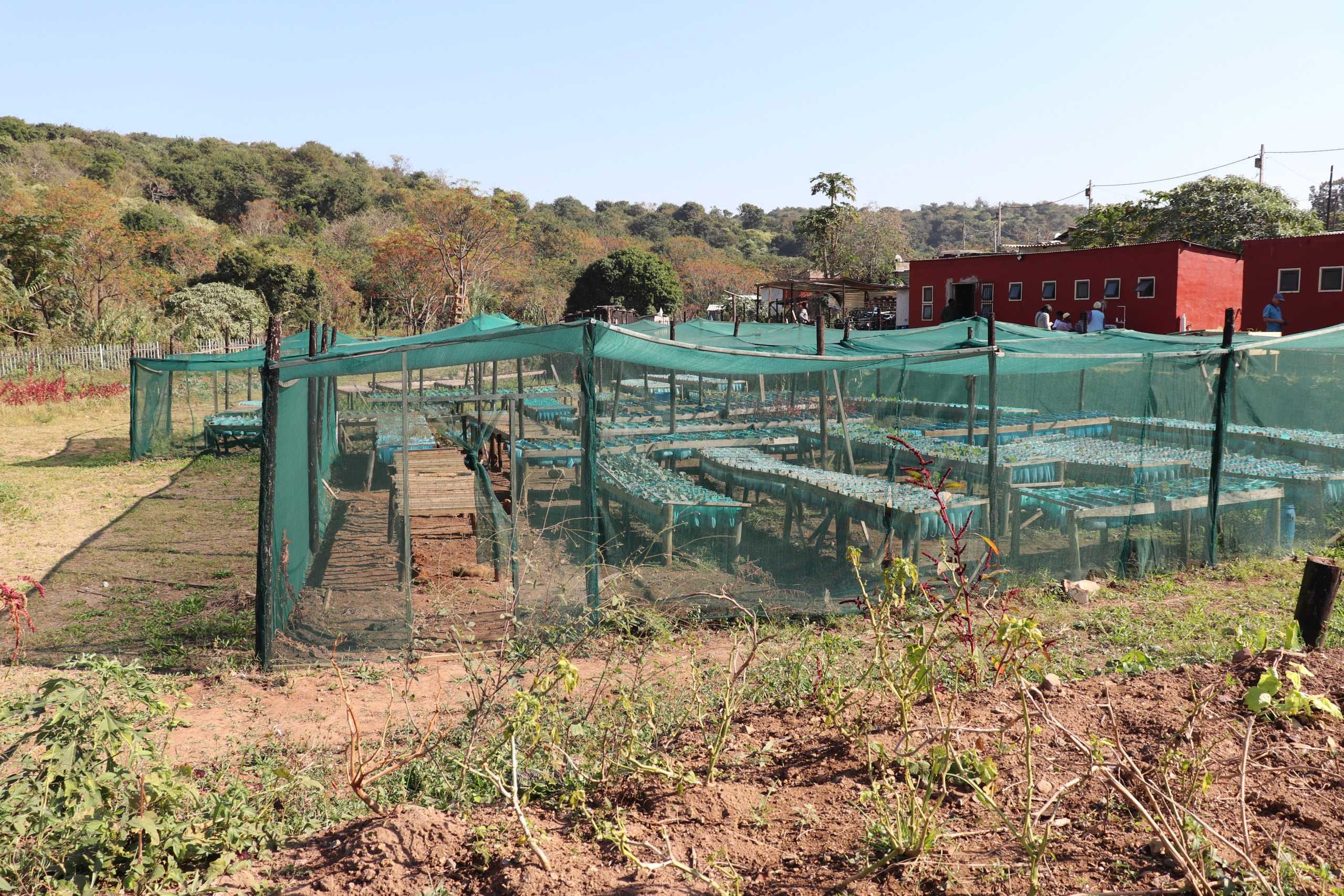
One year later, in 2015, Joye founded Umgibe Farming Organics and Training Institute, a sustainable organic vegetable farming system that serves the community by providing food security through healthy food and a platform for people to grow and sell their own vegetables. The project is located in the Ridgeview community, about 10 miles inland from the center of Durban.
“We got together with other people, and we started growing and collectively supplying,” Joye said. “Everyone had food on their table, some money on the side, and today I’m working with over 603 people growing vegetables, supplying organic vegetables.”
Joye said she needed to involve the community in order to meet demand and contribute to the community.

“I find the market, and we sell, and they get money, and I get money, and it becomes helpful for everyone,” Joye said. “That’s why my business is a social enterprise because I balance between the community being empowered and also myself, being able to sustain myself as well as a business.”
According to Statistics South Africa, 6.8 million South Africans experienced hunger in 2017. Research also found that larger households and black African households are more likely to have inadequate access to food. Households with three or more children are also more likely to have inadequate access to food versus households with fewer children or none.
Since households in South Africa range on average from about five to 12 people, teaching one person how to properly grow vegetables goes beyond helping just that person, Joye said.
“There is a ripple effect,” Joye said. “If I teach one person in one household, it means five people are going to survive because this person has now got the skill and these people are going to learn from that person.”

Aneesa Vawda, a member of the Gifted Hope Foundation, a Durban-based nonprofit that has been working with Umgibe informally since 2018, said Umgibe has given women in the community more than just the ability to grow and sell their own vegetables.
“They’re flourishing, not only financially but with their self-esteem,” Vawda said. “It gives them a purpose. They’re excited they’re not just sitting at home worrying where the food is going to come from. That is what Umgibe is all about.”
Vawda has been teaching some women in the community how to sew bags from recycled soda bottles which will replace the recycled plastic bags currently used in the growing systems.
Zodwa Mabaso has been learning to sew the bags and said Umgibe has assisted her and other women in making a living for their families.
“As a woman, you need to get up and wake up every morning and go and try to make means for your family,” Mabaso said through a translator.
Joye also began a program entitled Stop Hidden Hunger in response to a large number of children who go to school without anything to eat. The Stop Hidden Hunger program has been able to provide 25 schools with three growing systems, ensuring that students in need can pick up vegetables at school if they don’t have any food at home.
For Joye, both the Stop Hidden Hunger Program and Umgibe go beyond feeding members of the community and fighting food insecurity.

“It’s not necessarily about stomach hunger,” Joye said. “It’s about the hunger that a human being has got, the needs that those kids who come to school without food, and their mental needs, their self-esteem, the hunger to be appreciated, the hunger to be acknowledged, the hunger to be loved, all those things being encompassed into one.”



















